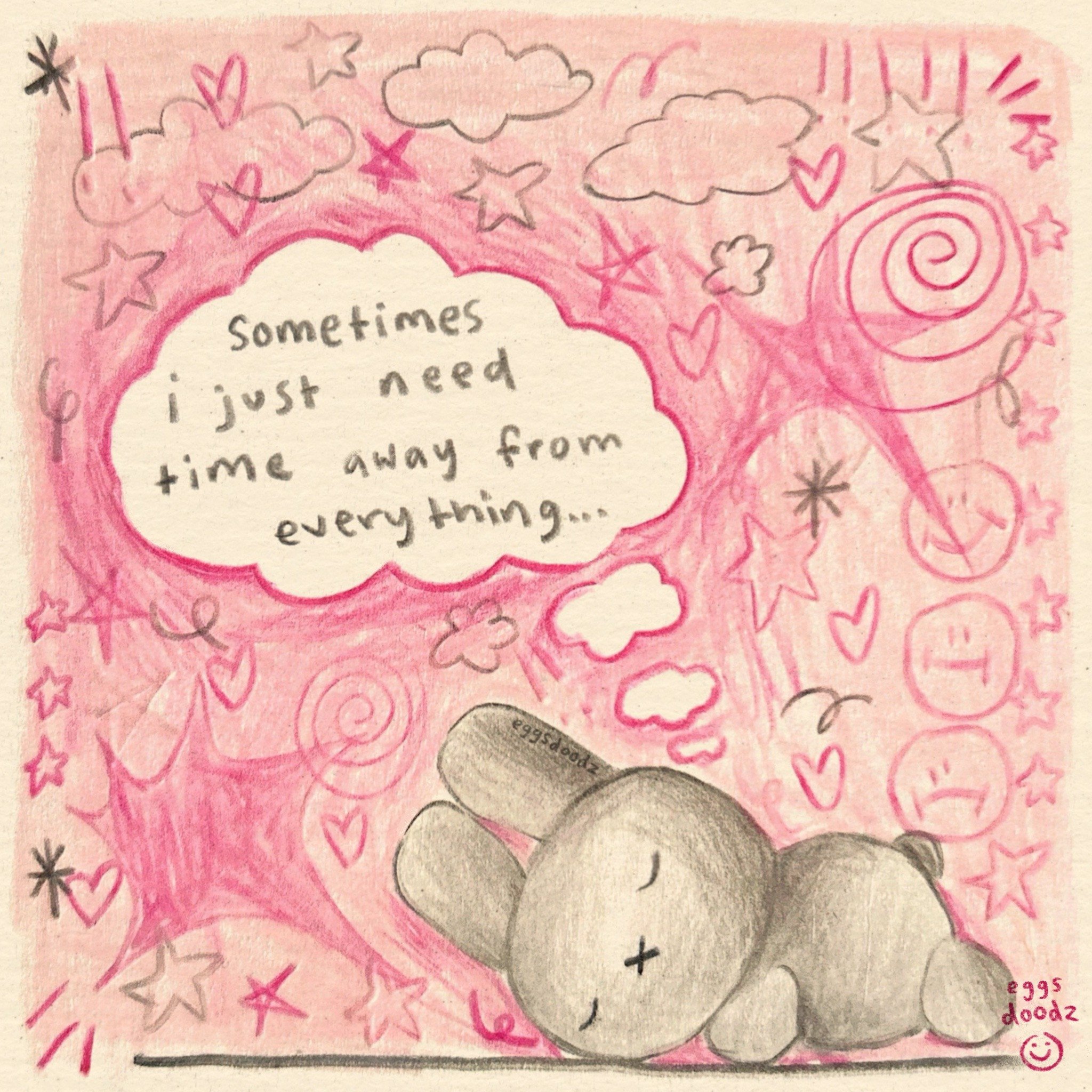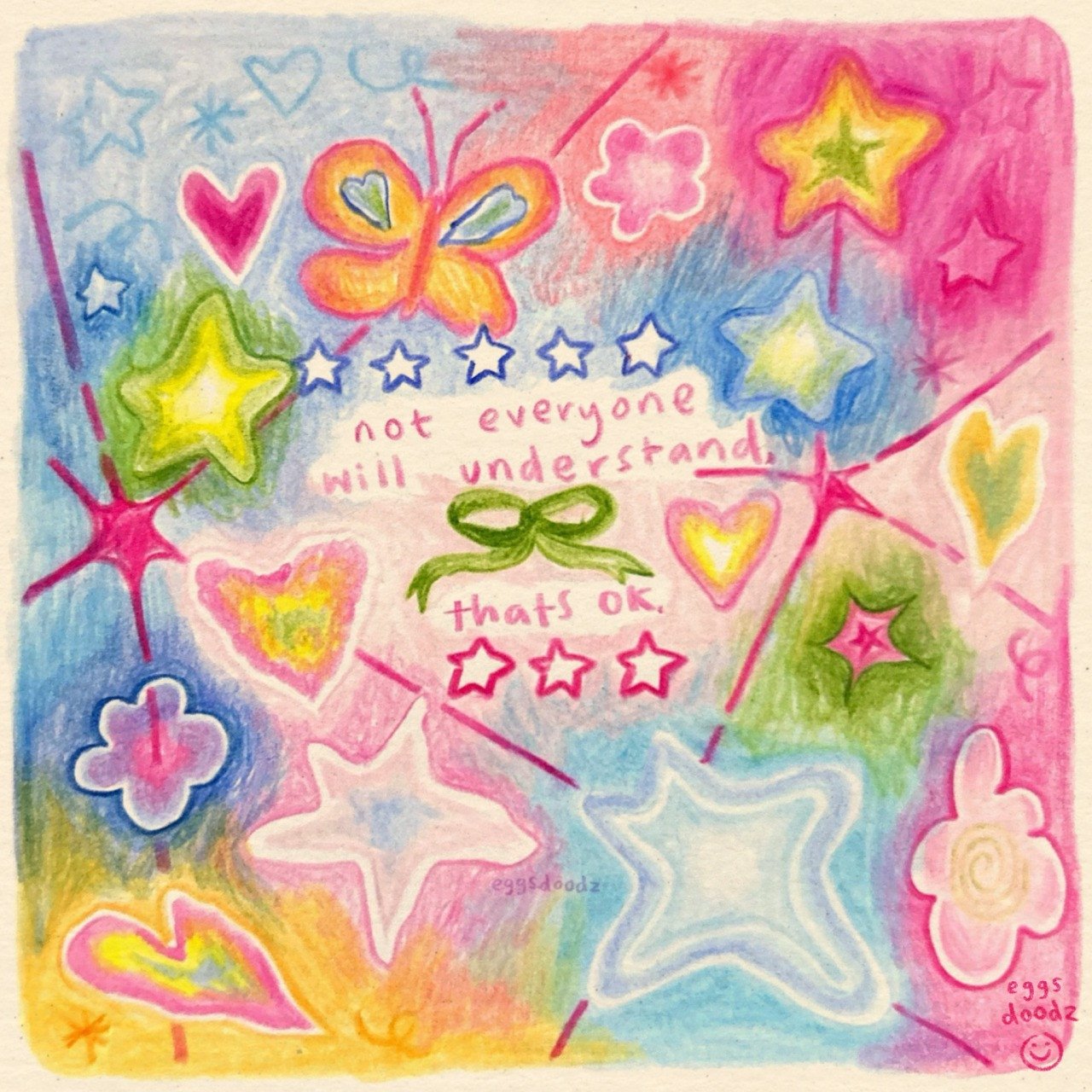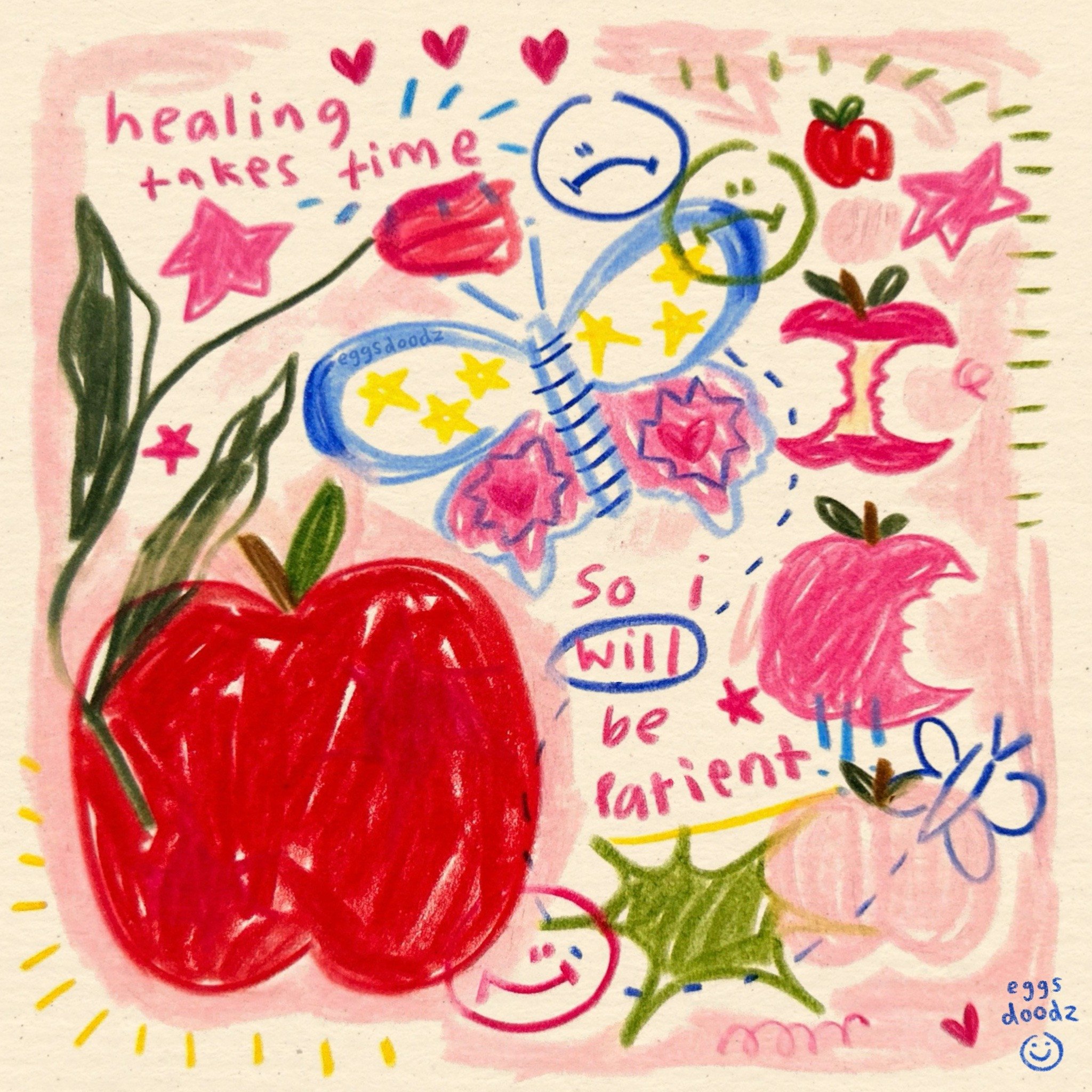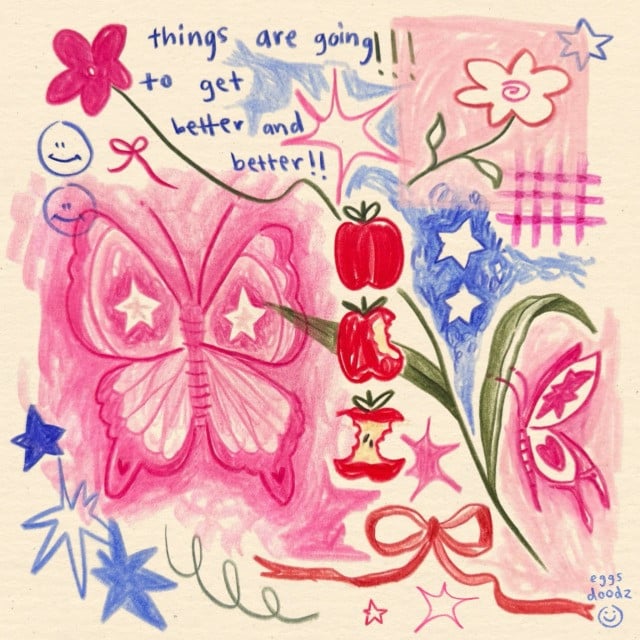This is certainly not about saying that to-do lists are pointless or that you shouldn’t establish routines. It’s a wake-up call to highlight that these methods, tactics, and articles that summarise ‘5 ways you can be more productive’ won’t help unless you’re genuinely committed.
The Comfort Zone Dilemma

Credit: @eggsdoodz on Tumblr
Everyone aspires to improve, but only a few are truly dedicated to that path. While it is true that people enjoy routines, they cherish comfort even more.
Students aim for good grades but also want an exciting and happening social life. Professionals often find themselves exhausted after a day’s work, leaving no energy for hobbies or personal projects.
There’s a clear pattern: we find solace in the life we’ve built. So, why disrupt that comfort? Why opt for healthier eating, regular gym visits, starting a blog, or launching a long-desired business when staying in your comfort zone feels so much easier? Comfort stifles improvement, or so has been indoctrinated within us.
The Misleading Nature of Advice

Credit: @eggsdoodz on Tumblr
While some prefer a comfortable life, others seek change. Desiring better health, higher income, enhanced beauty and the willingness to sacrifice today’s comfort for a better future is a tendency most have. Despite these ambitions and desires why do we feel disheartened so often? Let's dissect this.
Self-improvement advice articles online are usually along the lines of:
-
‘10 ways to stand out from others’
-
‘Rediscover yourself by living stoically’
-
‘8 productivity hacks to get things done’
Though these articles may work for some, they might not suit you. Following someone else's path blindly can lead to disappointment when the results don’t align with your expectations.
A lot of wellness trends and self improvement hacks have started to seem like a rebranded and repackaged version of early 2000’s diet culture and toxic positivity, all under the guise of self-care. Debilitating and chronic illnesses, anxiety and depression cannot be magically cured simply by ‘thinking positively’ or ‘trying yoga’. Adopting viral wellness and ‘glow up’ trends on TikTok such as the that girl phenomenon is not guaranteed to get your life together or solve all your problems, rather you will be forced to face them in the most disoriented manner. This trend has garnered almost a billion views on the platform and has revealed itself as a dangerous enabler of the wellness industry, it is actively profiting off of the popularity of this trend.
Drinking the most picture perfect smoothies, journaling diligently, waking up at 6 in the morning to workout in the perfect matching workout set are all things that make you that girl, and if you’re not doing that then you’re probably not doing enough.
Self-care is different for everybody. If self-care for you means deep cleaning your room every month, that is self-care. If it means leaving your house messy for a day because you cannot deal with the stress anymore, that too is self-care. Sleeping in is self-care too! It is bothersome and worrisome that self-care and self improvement is often limited to doing yoga, looking clean and waking up early (which are all effective ways to take care of yourself too!)
Ultimately, people are beginning to realise this. The capitalist wellness industry, coupled with superficial self improvement hacks available online are selling an unattainable perfection. Even the word ‘industry’ after wellness seems unsettling, must we monetise everything?
Similarly, buying things will probably not save us from the messiness and uncertainty of the human experience, no matter how holistic the branding and marketing of the product is.
Real effort, True fulfilment

Credit: @eggsdoodz on Tumblr
We’re bombarded with advice on living our best lives and romanticising it as much as possible, yet we often fall short. Why? Because we’re not doing the real work. Are you reading that book because you enjoy it or because it’s on your list so you must finish it to feel a sense of accomplishment? Are you working because you’re passionate about it or because you think you should?
Improving yourself doesn’t mean changing everything that makes you unique. Greek Stoic philosopher Epictetus wisely said, “First say to yourself what you would be, and then do what you have to do.” Focus on what you genuinely want to achieve. What kind of person do you aspire to be?
Rethinking Getting Better

Credit: @eggsdoodz on Tumblr
‘Get better.’ But what does that truly mean? Who determines what better looks like? That is wholly subjective. Is it working more, eating healthier, or adhering to a strict schedule?
True improvement is most rewarding when driven by internal motivation rather than outward pressures. Essentially, it’s about following your own unique path, whatever that may be. Don’t force yourself to apply strategies that don’t resonate with your personal goals.
Meditation, yoga, journaling, going for a walk, exercising are actually very helpful and essential parts of most people’s wellness journey. However, they are most beneficial when they are employed in the pursuit of inner wholeness and peace, not external flawlessness.
Challenges, setbacks, and detours are all inevitable anyway. By understanding the unpredictable nature of life, you can build resilience, strength, and wisdom that go beyond superficial notions of getting better.


1719219903-0/The-Self-Help-Paradox-(source-Pexels)1719219903-0.webp)






COMMENTS (1)
Comments are moderated and generally will be posted if they are on-topic and not abusive.
For more information, please see our Comments FAQ